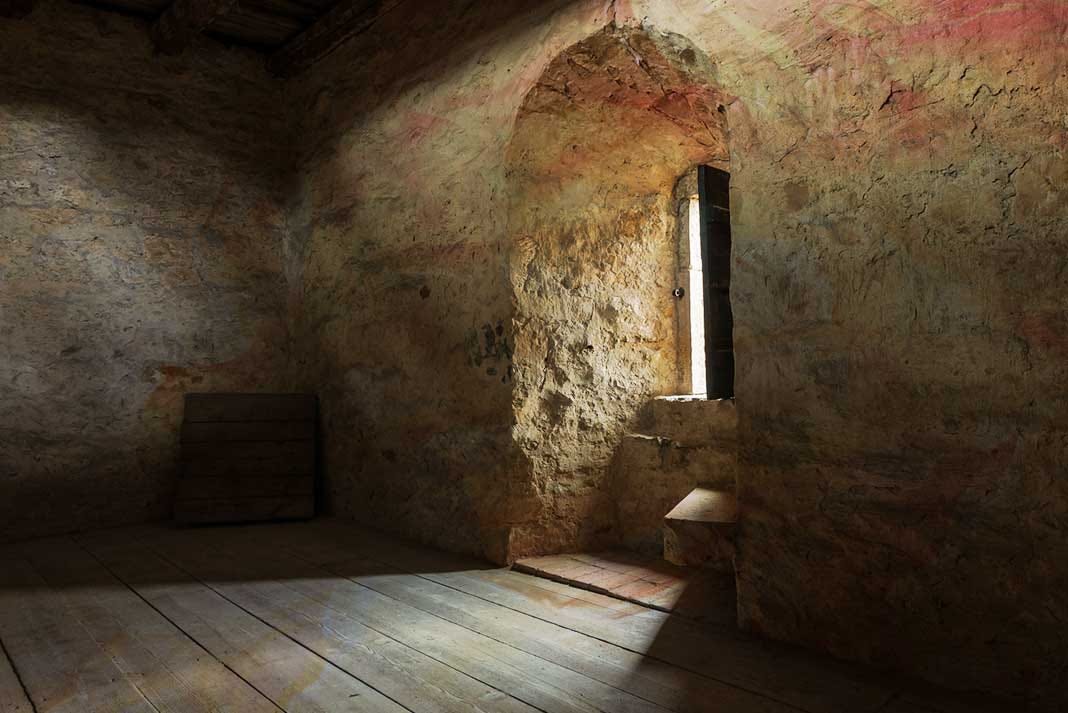At today’s Mass, the gospel reading was John 20:19-31. It is the story of Doubting Thomas, which has always been one of my favorites. In fact, it was the topic of one of the first poems I ever wrote when I began writing poetry seriously. I looked through all of my poetry files and I can’t find that poem anywhere now. It was a very early poem, and maybe I decided at some point that it was terrible and deleted it in an artistic snit. Or maybe it just vanished into the electronic ether over the years. I don’t remember much about it now, except that it was sympathetic to Thomas’s wish to see the nail marks on Jesus’s hands and put his hand into his side to feel the wound.
In a strange dichotomy of character, I have always readily believed in the unseen, and yet I have always had an affinity for Thomas and his need for proof. Hearing the gospel fresh today after many years, I also found it interesting that Jesus indulges Thomas and willingly shows him his wounds. He does not demand blind faith of Thomas, perhaps understanding that he can’t overcome his lack of faith, or perhaps wanting to use it as a teaching moment. I’ve never thought that Thomas’s request was unreasonable—after all, as one Bible scholar pointed out, he was only asking for what the other disciples were shown the week before, when Thomas was absent.
These last seven or eight months since I’ve returned to the Catholic Church have been a dance with faith and doubt which nothing that came before prepared me for—and a lot came before. In the RCIA class that I audited, we were encouraged to go as far into the doubt as possible, to apply the highest levels of philosophical reason and logic to the question of God’s existence, and to use our intellect to its fullest extent in matters of faith. It was a surprisingly cerebral affair, and at times it was a bit overloading. I didn’t always feel the need swim through hours of Catholic apologetics and lectures on philosophy. Sometimes I just wanted to rest in the faith that had brought me back. And yet I have found that faith to be flighty--a fluttering paper bird, a flickering light behind a curtain, a patch of earth over a fault line. It needs continuous prayer and the grace of God to grow in stillness and solidity. So I remain sympatico with Thomas; his investigator’s sense and his need to see with his own eyes that which others may believe without seeing. And yet God continues to indulge my Thomas-ness and grant me proof in small ways every day.
Although I couldn’t find my original poem about Doubting Thomas, I did find another poem that addresses faith, one I wrote years after which I almost completely forgot about, that in some ways revisits the theme of the original lost poem:
Empty
When I stick my hands in there to feel around there’s nothing. Once I sat for emptiness alone, entire months, flailing blindly in the spaces where emptiness had weight. Nothing rolls off of my palms, nothing mocks my efforts. I’m parched and have received bad information. All that time I sat, breathing in, only to know my own low feelings. To kneel there open-handed and say, this is all I have to offer. My palms no longer ferry light.
They say within a void lies all possibilities, but I think there are only two persuasions: Corpulent emptiness, and a nothingness that drifts above our heads, that will not acknowledge us. In second grade we planted seedlings. They came up vivid, lusty shoots. I understood then there was a kind of order, that this was nature’s outcome. It was impersonal and pleasing. Could I now proclaim, I am feeling full, or I must fill up, or, I am fully felt. I flounder with seeds and window boxes. The problem is that emptiness has teeth, and wishes of its own. The emptiness is un-content. It will not do with the least it can survive on. No stones, no feathers, no shells settle in my hands. Only a crusted thing, grown around its nut, seed of all nourishment, jewel of the essential.
Sit and think of nothing. Sit and engage only in the hollowness of breath, its motion in your veins. I tell people all day long because I believe it is important: We breathe in oxygen, we breathe out carbon dioxide, the lungs lunge, the lungs do their job. There is nothing easy in the effortless.
I remain to this day faithless despite everything I knew my heart could do. I stick my hands in there to feel around. I bring up tangled in my fingers a clear and weightless substance that slips off into space.
--Kristen McHenry


"There is nothing easy in the effortless." I'm going to spend some time with these words, thinking particularly about how they connect to faith, both its presence and its absence.
Your words are so unique!